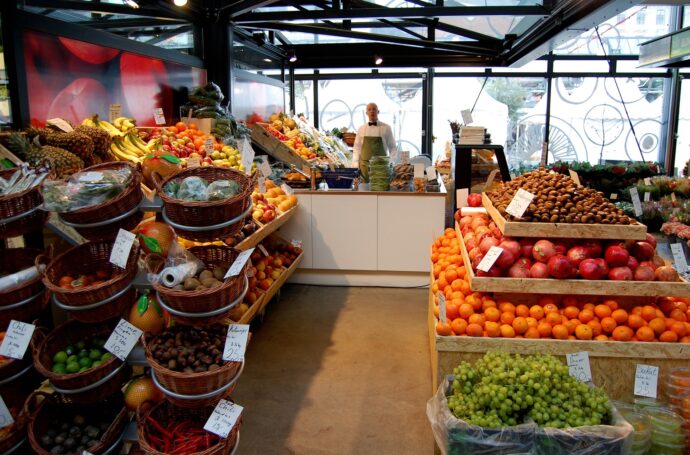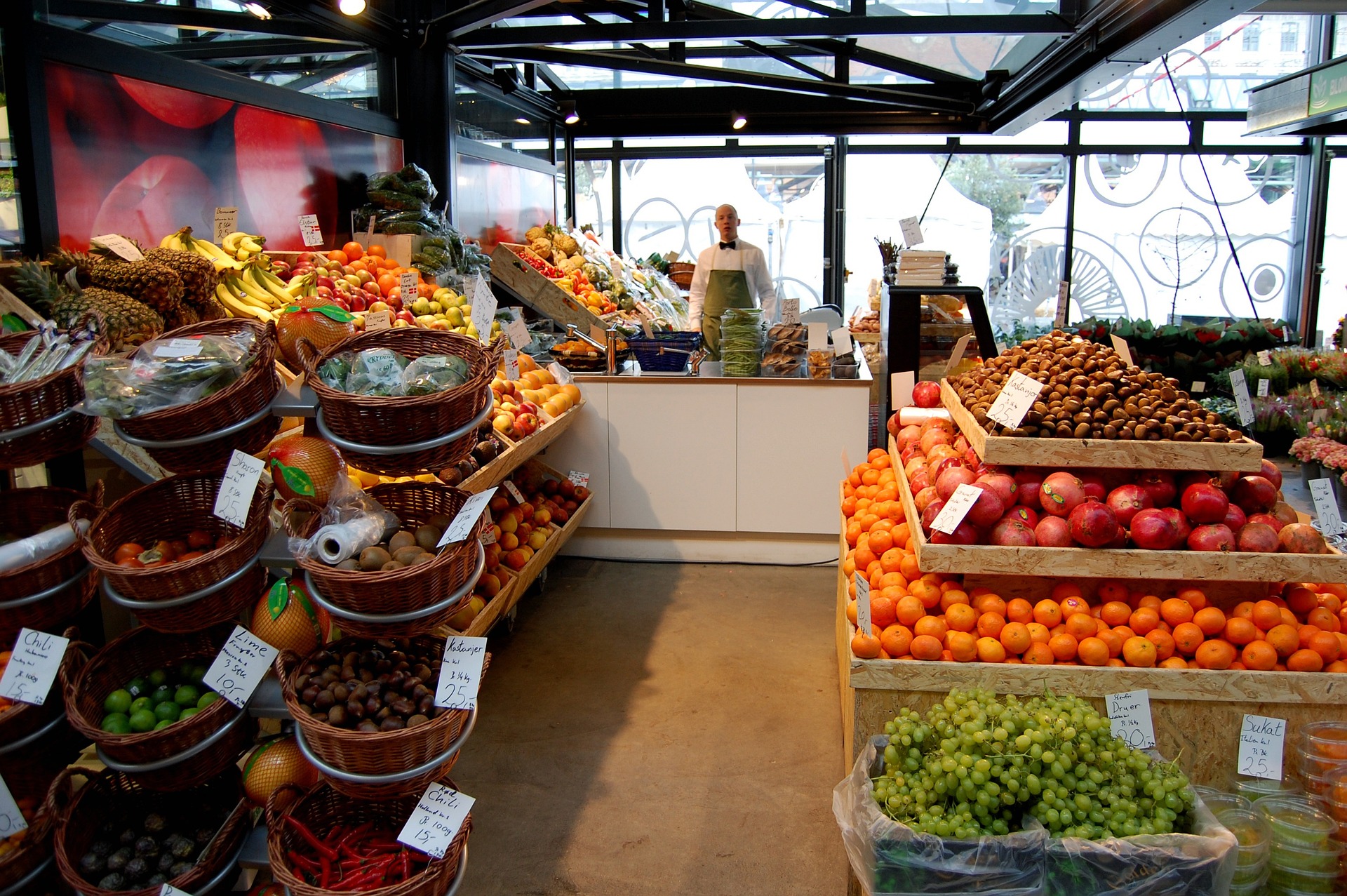Concrete drainage channels last more than 120 years, which makes them great long-term investments for water management. But their lifespan can drop by a lot if installation mistakes happen. Property owners often find out too late that poor channel drain installation can get pricey to fix, damage property, and reduce how well the system works.
These systems can fail even with expensive equipment if you pick the wrong type of drainage channel concrete or miss important load ratings. Heavy duty concrete drainage channels need different installation methods compared to their shallow variants. The concrete drainage channel blocks’ position must be exact to handle water flow properly. This becomes crucial in high-volume areas where flow rates hit 11 gallons per minute through a half-inch slot opening. A well-installed drainage system stops water from pooling, which prevents slip-and-fall accidents and protects your property’s structure.
This piece gets into the five most common concrete channel drainage installation mistakes. You’ll learn budget-friendly ways to make sure your drainage investment works at its best. Understanding these issues before you start can save thousands in repairs, whether you’re working on big commercial properties or home projects.

Mistake 1: Ignoring Site Slope and Water Flow
Bad site grading ranks as the biggest problem behind drainage system failures in homes and businesses. A full picture of slope and water flow patterns should happen before installing any concrete drainage channel. These basic factors will determine how well the system works.
Why slope matters in drainage channel concrete
Water movement follows basic physics – the right slope creates gravity force needed for quick drainage. Engineering standards tell us concrete drainage channels need at least 1/4 inch slope per foot of length (about 2%) to work right. This small grade difference matters a lot.
The right slope guides water away from buildings instead of toward them. This becomes crucial when installing channel drains in driveways or near structures because it stops water from pooling around foundations and causing damage.
Concrete drainage channels with proper slope clean themselves naturally. One manufacturer’s study showed channels with a 2.5% built-in slope can drain up to 100 liters per second in a 20-meter length. The faster water moves, the better it carries away dirt and debris that could block the flow.
Slope also determines how much water your drainage channel concrete can handle. Heavy-duty systems need carefully calculated gradients that balance water speed and prevent erosion. Water sits stagnant with too little slope, while too much slope makes water move fast enough to cause damage.
Shallow concrete drainage channel installations work best with a minimum gradient of 5mm per meter (1:200 ratio). This will give a steady flow without overwhelming the system during heavy rain.
How poor grading leads to pooling and erosion
Bad grading starts a chain of drainage problems that end up damaging both the concrete drainage channel and property around it. “Negative grading” happens when ground slopes toward buildings instead of away, sending water toward foundations rather than drainage systems. This creates:
Pressure against foundations that causes cracks, leaks, and structural problems Soil erosion under concrete drainage channel blocks that weakens their base Standing water that breeds mosquitoes and makes surfaces slippery Faster concrete breakdown from water freezing and thawing
The ground naturally settles after construction and creates low spots where water collects. These spots become bigger problems over time without proper grading toward concrete slab drainage channels.
The damage goes way beyond just being inconvenient. Research shows foundation repairs from bad drainage and grading are among the most expensive home fixes. Wet soil also expands and can push thousands of pounds against concrete structures.
Drainage channels that ignore the surrounding landscape don’t catch water effectively. Concrete drainage channel blocks must line up exactly with natural water paths. Water simply flows around poorly placed systems and heads to the lowest point – usually right at the building’s foundation.
A thorough site check before installing drainage channel concrete costs nowhere near as much as fixing water damage later. Smart planning of slopes and understanding water flow patterns are the foundations of making concrete drainage channels work properly.
Mistake 2: Choosing the Wrong Type of Channel Drain
Property owners often underestimate how important it is to pick the right concrete drainage channel type. Many realize this only after problems start showing up. Poor channel drain choices can make the system fail early, damage property, and get pricey to replace.
When to use shallow concrete drainage channels
Shallow concrete drainage channels work best where you can’t dig too deep. These drainage systems usually go between 3.1″ and 3.9″ in depth. You’ll find them perfect for places with thin slabs.
These shallow channel drain systems come with several benefits:
- They work great where regular deeper channels won’t fit because of slab depth limits
- They excel as perimeter drains by quickly moving water away from buildings and hard surfaces
- Their fire resistance makes them great for indoor use, since trench drains often collect flammable liquids and heavy vapors that might cause fires
Most shallow drainage channels come with interlocking tongue and groove profiles that help line everything up during setup. This design helps water flow smoothly and stops leaks between sections—which is vital for keeping the system running well over time.
Heavy duty vs. light duty: what’s right for your project?
Your concrete drainage channel’s load capacity will determine how well it performs long-term. You need to know about load classifications to pick the right one:
| Load Class | Max Weight (Tons) | Typical Applications |
|---|---|---|
| A15 | 1.5 | Gardens, patios, pedestrian areas |
| B125 | 12.5 | Driveways, slow-moving traffic areas |
| C250 | 25 | Commercial areas, retail parks, lightly trafficked roads |
| D400 | 40 | Main roads, highways, public car parks |
| E600 | 60 | <citation index=”8″ link=”https://www.jdpipes.co.uk/knowledge/channel-drainage/choosing-right-channel-drain-loading-class.html” similar_text=”To help with this, check out the table below, which shows a brief description of the different loading requirements and their typical applications: Load Class |
| F900 | 90 | Docks, airports, industrial facilities |
Your project’s needs should guide your choice between heavy and light duty concrete drainage channels. Light duty options (A15-B125) work well enough for homes, while business and industrial sites usually need heavier duty solutions (C250-F900).
The material used also plays a big role in how well drainage channels perform. Here are your options:
- Polymer concrete channels – Light, easy to set up, and good for fire-resistant needs
- Fiber reinforced concrete (FRC) – Extra strong to handle heavy traffic impact
- Pre-cast concrete systems – Ready to use right away without weather-related curing issues
Common misuses of concrete drainage channel blocks
Drainage systems often fail because people don’t match the right channel types to their needs. Here are the most common mistakes:
The biggest problem is picking a load class that’s too light. Many homeowners pick B125 class drains for their driveways without thinking about occasional heavy vehicles like delivery trucks or garbage trucks. These situations need at least D400 class to avoid breaks.
People also pick the wrong channel types for specific places. Slot channel drains don’t handle as much water as regular grated channels because their openings are smaller. While they look nice for walkways, they can’t handle lots of water.
Wrong materials can make systems fail too. Linear channel drains made of fiberglass, polymer concrete, steel, or plastic need concrete around them to be strong enough for vehicles. Without this support, they break down quickly under weight.
Grating compatibility gets overlooked too. People think all gratings fit all channels. The truth is, gratings must match both the brand and load class of the channel system to stay strong.
Modular trench drains need careful planning. These come in 3.33-foot sections that link together for longer runs. Bad connections between sections let water leak out and weaken the whole system.
Mistake 3: Poor Installation Practices
Perfect planning and material selection won’t guarantee success if installation errors creep into concrete drainage channel systems. These avoidable mistakes can ruin performance and cut short the life of what should last a century.
Skipping substrate preparation
A successful channel drain installation needs proper substrate preparation as its foundation. You must clear all debris, excess soil, and obstructions from the area. The substrate needs proper compaction and grading to create a stable foundation that prevents future movement of concrete drainage channels.
Existing concrete surfaces need special attention:
- Remove laitance (weak surface layer) ranging from 0.01″ to 0.1″ thick
- Check pH levels – aim for 7 (acceptable range: 6.5 to 9.9)
- Clean off curing compounds, oils, or contaminants that prevent bonding
Abrasive shot-blasting works best to prepare concrete surfaces, especially on horizontal areas. Your drainage system will likely fail if you skip this crucial step.
Incorrect concrete mix or curing
Drainage applications typically use concrete grade M15 (15 MPa compressive strength), though load-bearing applications might need M20 or M25. Keep the water-cement ratio at 0.40 or lower to ensure strength.
Temperature plays a big role in curing time. Higher temperatures speed up the process while lower temperatures slow it down. You need to watch moisture levels carefully – too much creates weak concrete, too little leads to cracks.
The concrete needs at least 7 days to cure properly. Keep it damp and shield it from extreme temperatures during this time. Your concrete drainage channels can fail early if you rush or skip proper curing, even if you’ve done everything else right.
Improper sealing and jointing
Good trench drain joint sealing starts with rough, clean surfaces. Think of it like painting – sealant won’t stick to poorly prepared surfaces, just like paint won’t stick to sand.
Linear channel drains need proper mitering at the connection points to keep channel width consistent. Use appropriate sealants like polysulphide or silicone rubber to waterproof these joints.
Neglecting rebar or reinforcement in heavy load areas
Concrete doesn’t handle tension well – it’s only 10-15% as strong in tension as it is under compression. Rebar creates a stronger composite material where concrete handles compression and rebar manages tension.
Your concrete drainage channels need reinforcement:
- At the slab’s bottom to handle bending forces
- In side walls to resist lateral pressure
- With adequate concrete cover to stop corrosion
Heavy duty concrete drainage channels that support trucks or machinery must have rebar reinforcement. Small cracks can grow faster under heavy loads, making reinforcement crucial for industrial applications.
Mistake 4: Overlooking Grate and Load Class Requirements
Poor grate selection and wrong load class ratings are among the mistakes that can get pricey when designing drainage systems. These small details can lead to system failure, safety risks, and expensive replacements.
Understanding load ratings for channel drains
Load ratings for concrete drainage channels follow standard classifications that show how much weight the system can handle safely. The European Standard EN 1433:2002 sets six load classifications from A15 to F900, with values showing test loads in kilonewtons. These classifications work for different uses:
- Class A15 (1.5 tons): Works best in gardens, patios and areas where only people walk
- Class B125 (12.5 tons): Best for driveways and areas with slow-moving traffic
- Class C250 (25 tons): Perfect for commercial spaces and roads with light traffic
- Class D400 (40 tons): You need this for highways, main roads and public parking lots
- Class E600 (60 tons): Great for forklift loading bays and cargo yards
- Class F900 (90 tons): These are the foundations of docks, airports and industrial sites
Moving forces and heavy traffic can affect drainage system requirements by a lot. Experts suggest picking a higher load class if you’re unsure. Over-engineering costs less than a failed system.
Choosing the right grate for safety and performance
You need to think about many things beyond load capacity when picking a grate. Drain grates do important jobs: they let water through while stopping debris, spread heavy loads, and prevent accidents.
Your choice of material affects how long the grate lasts and how well it works. You can pick from reinforced plastics, stainless steel, and cast iron—each one handles heavy use and bad weather differently. Cast iron grates develop a protective iron-oxide coating that starts red-orange and turns deep brown over time, staying strong for decades.
Here’s everything you need to know about pedestrian safety:
- Heel-proof designs: Keep the smallest openings at 8mm or less
- Slip resistance: This matters most in areas with lots of foot traffic
- Americans with Disabilities Act (ADA) compliance: Many public places must have this
The grate’s water flow depends mostly on its open area. Bigger openings help water flow better but let more debris in. Smaller openings reduce clogging but might not handle heavy rain as well.
Regular inspections help you spot damage, rust, or wear before the system fails completely.
Mistake 5: Lack of Maintenance Planning
Many property owners overlook maintenance as the last step in concrete drainage channel ownership. They spend a lot on quality installation but don’t follow up with the care strategies needed to protect their investment.
Why regular inspection is critical
Regular inspections are the life-blood of drainage system longevity. Property owners can spot potential problems before they turn into major headaches through periodic checks. These inspections help detect structural damage, cracks, or signs of corrosion that could compromise channel integrity early.
You should adjust inspection frequency based on specific conditions. At minimum, get a full picture twice yearly (spring and fall). Commercial properties or areas exposed to heavy debris need quarterly inspections. This proactive approach prevents emergency repairs from getting pricey while keeping water management working at its best.
How debris and sediment reduce flow rate
Sediment buildup poses the most hidden threat to concrete drainage channels. Research shows that entrained suspended sediment and bedload create severe operational problems in drainage structures. Accumulated sediment can reduce discharge coefficients by up to 10% even in well-designed systems.
Debris flows in first-order channels can increase sediment volume from an original 450m³ to 2400m³ at channel mouths. This is a big deal as it means that sediment can quickly overwhelm drainage systems. On top of that, it creates blockages that stop smooth water flow and lead to:
- Overflow and potential water damage to surrounding structures
- Erosion of channel foundations and supporting substrate
- Reduced hydraulic capacity during critical rain events
- Increased biological hazards from standing water
Simple maintenance tips for long-term performance
You can protect your concrete drainage channel investment with a systematic maintenance schedule that includes:
Clean gutters, downspouts, and drain covers to remove debris and prevent clogs regularly. Flush channels with water to clear accumulated sediment periodically. Fix any standing water issues right away since poor drainage can damage foundations.
Keep records of all maintenance activities with dates and observations to track system history. This documentation helps make smart decisions about future maintenance needs and protects your drainage investment for decades.
Correct installation of concrete drainage channels is a crucial investment that protects your property for decades. This piece gets into five devastating mistakes property owners make when installing these water management systems. The foundation for drainage to work starts with proper site grading and slope calculations. You also need the right channel type based on load requirements to ensure structural integrity lasts.
Your system’s lifespan will substantially increase with careful installation practices, especially when you have proper substrate preparation and concrete reinforcement. The right grates with correct load classifications prevent system failures and keep pedestrians safe. A good drainage system becomes exceptional with regular maintenance that catches problems early.
Property owners should treat concrete drainage channel installation as a complete process instead of a simple construction task. Cutting corners during installation will demonstrate property damage, reduced functionality, and repairs can get pricey. The original installation may take more time and resources, but this investment ended up giving superior protection against water damage for over a century when done right.
Understanding these common pitfalls before starting installation gives property owners the ability to make informed decisions that protect their structures and finances. Professional consultation before major drainage projects can spot site-specific requirements that general guides might miss. Your concrete drainage channels will reliably manage water through decades of service with proper planning and execution.
Here are some FAQs about the concrete drainage channel:
What is a concrete drainage channel?
A concrete drainage channel is a durable, engineered system designed to collect and redirect surface water runoff. These channels come in various forms including shallow concrete drainage channel options for light-duty applications and heavy duty concrete drainage channel systems for industrial areas. They’re often made from precast concrete drainage channel blocks or formed in place to create continuous concrete slab drainage channel solutions.
How do you install a drainage channel in concrete?
Installing a concrete drainage channel involves excavating a trench to the proper depth and preparing a stable base. For precast concrete drainage channel blocks, you’ll align them carefully before backfilling, while poured-in-place concrete slab drainage channel systems require formwork and reinforcement. The installation must maintain proper slope toward the discharge point, with heavy duty concrete drainage channel installations often needing additional structural support.
How do you drill a channel in concrete?
Drilling a channel in existing concrete requires specialized equipment like concrete saws or core drills to create precise openings. For retrofitting a shallow concrete drainage channel, professionals typically use diamond-tipped blades to cut clean channels without damaging surrounding concrete. This process differs from installing new concrete drainage channel systems which are better formed during initial slab pouring.
What are channels in concrete?
Channels in concrete refer to purposeful grooves or conduits designed for various functions, with drainage being the most common. A concrete drainage channel specifically manages water flow, while other channels might house utilities or provide expansion joints. These range from shallow concrete drainage channel designs to deeper heavy duty concrete drainage channel systems depending on anticipated water volume.
What is the purpose of a drainage channel?
The primary purpose of a concrete drainage channel is to control surface water runoff and prevent pooling or flooding. These systems, from shallow concrete drainage channel installations to heavy duty concrete drainage channel networks, protect structures from water damage and erosion. Properly designed concrete slab drainage channel solutions also help maintain safe, dry walking and driving surfaces in all weather conditions.
What is the best concrete mix for drainage channels?
The ideal concrete mix for drainage channels typically has a minimum 4,000 psi strength with additives for durability and water resistance. Heavy duty concrete drainage channel applications may require fiber-reinforced concrete or special mixes to withstand freeze-thaw cycles. For precast concrete drainage channel blocks, the mix often includes water-reducing admixtures for better flowability during manufacturing.
How deep should a channel drain be?
Channel drain depth varies by application, with shallow concrete drainage channel systems typically 2-4 inches deep for residential use. Heavy duty concrete drainage channel installations in commercial areas may require 6-12 inch depths to handle larger water volumes. The concrete slab drainage channel depth must account for the grate thickness while maintaining adequate water flow capacity.
Do channel drains need a trap?
Most exterior concrete drainage channel systems don’t require traps as they’re designed for free water flow. However, some concrete slab drainage channel installations connecting to sewer systems may need sediment traps to prevent clogging. The need for traps depends on local codes and whether the heavy duty concrete drainage channel discharges to a storm drain or other regulated system.
How deep should drain pipe be under concrete?
Drain pipes beneath concrete slabs typically need 12-24 inches of coverage, depending on climate and load requirements. When connecting to a concrete drainage channel system, pipes should slope at least 1/8″ per foot toward the outlet. For heavy duty concrete drainage channel installations, deeper pipe placement may be necessary to accommodate heavy vehicle loads above.















 Whether you work in a restaurant kitchen, are a long-haul truck driver, or regularly put in long hours at the office, being a hard worker is not easy! You are an asset to whomever you work for because not everyone works as hard as you do, but sometimes you can get taken advantage of because of your hard-working nature. If you’re always thinking of ways to work more and constantly putting in overtime, read on. Here are 3 helpful lifestyle
Whether you work in a restaurant kitchen, are a long-haul truck driver, or regularly put in long hours at the office, being a hard worker is not easy! You are an asset to whomever you work for because not everyone works as hard as you do, but sometimes you can get taken advantage of because of your hard-working nature. If you’re always thinking of ways to work more and constantly putting in overtime, read on. Here are 3 helpful lifestyle 






